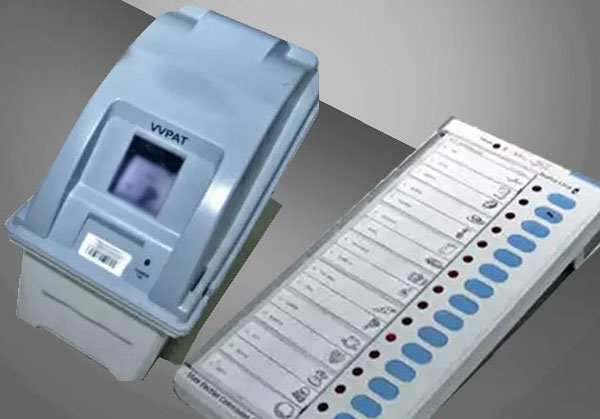Daijiworld Media Network - New Delhi
New Delhi, Apr 7: The Supreme Court today reaffirmed the integrity of the Electronic Voting Machine (EVM) counting process by dismissing a petition seeking a directive for the Election Commission of India (ECI) to implement 100% manual counting of Voter Verifiable Paper Audit Trail (VVPAT) slips, in addition to the electronic tabulation by the EVM's control unit.
A panel comprising Chief Justice of India Sanjiv Khanna and Justices Sanjay Kumar and K.V Viswanathan chose not to intervene in the earlier ruling of the Delhi High Court, which had rejected the public interest litigation (PIL) filed by the appellant.
During the court proceedings, the Chief Justice Khanna-led Bench explicitly stated its disinclination to repeatedly revisit the same legal arguments. Ultimately, the apex court dismissed the special leave petition brought forth by the appellant, who was acting as a PIL litigant.

This decision echoes a similar stance taken by the Supreme Court in April 2024, when it dismissed a series of petitions advocating for mandatory cross-verification of all votes cast via EVMs with their corresponding VVPAT slips.
In that earlier judgment, a bench comprising Justices Sanjiv Khanna (now CJI) and Dipankar Datta acknowledged the fundamental right of voters to have their votes accurately recorded and counted. However, the court clarified that this right does not inherently equate to the right to a 100% manual count of VVPAT slips, nor does it grant voters the right to physical access to these slips to deposit them in a ballot box themselves.
The appellant in the present case had initially filed a PIL before the Delhi High Court, urging the ECI to adopt an alternative VVPAT system design for future elections. This proposed system would feature an open printer where the printed ballot would be cut and presented to the voter for verification before being handed over to a presiding officer prior to the voter leaving the polling station.
The Delhi High Court, in its judgment delivered on August 12th of the previous year, declined to entertain this plea. The High Court reasoned that the core issue raised in the PIL was no longer a novel legal question ("res integra") in light of the Supreme Court's previous pronouncements on the matter.